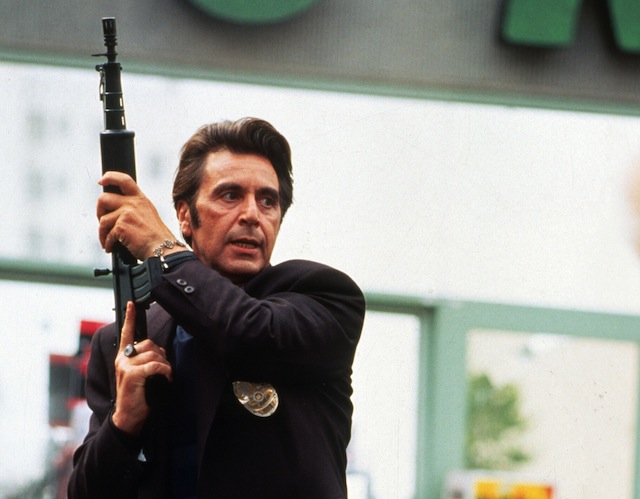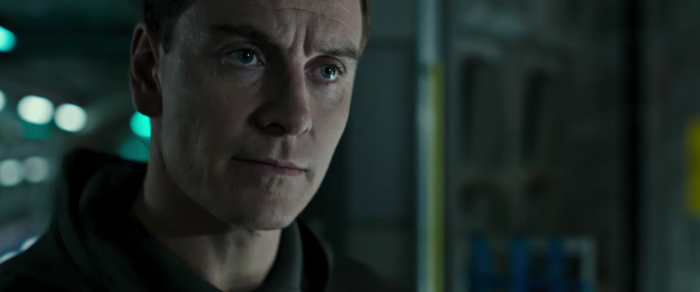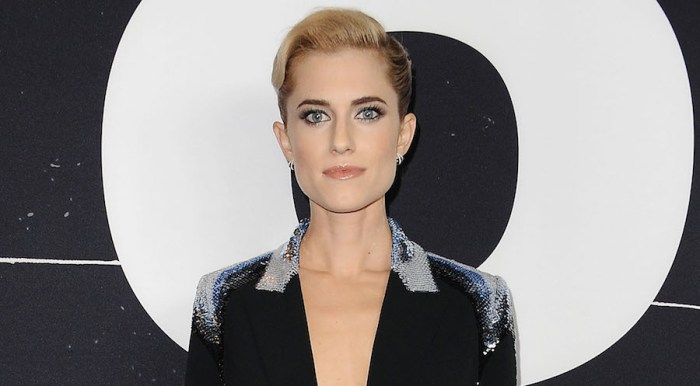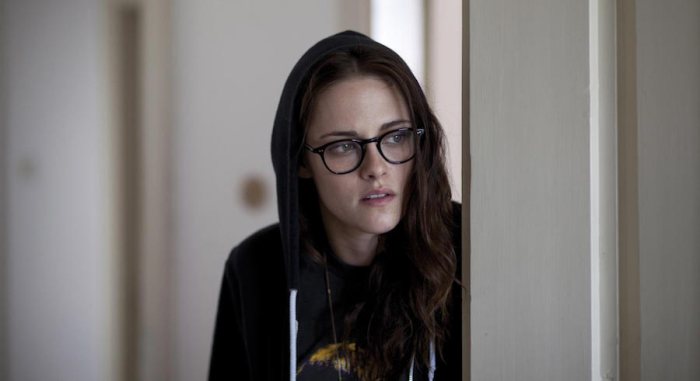‘Heat & Vice: The Films of Michael Mann’ Like the thieves and cops and occasional Colonial America badasses who haunt his films, director Michael Mann does his job. When his characters fall, they fall hard. When they win, their wins are fleeting, suspect. Mann himself has been lucky. He’s had his share of bombs, in addition to bona fide hits; his posters can always boast that he made “The Last of the Mohicans,” “Heat” and “Collateral,” or that he was the showrunner of that most ’80s of ’80s shows, “Miami Vice.” But he’s always been able to make movies, and ones only he could, or would, make. Even when few are paying attention, he’s hard at work. RELATED: Interview: The Coen brothers talk Clooney, Commies and “Hail, Caesar!” “Heat & Vice: The Films of Michael Mann,” the filmmaker’s first ever full retro (in New York, at least), arrives in the wake of his biggest ever bomb: last year’s “Blackhat.” The fleet, globetrotting, retro-yet-modern thriller tanked, but it was instantly adored amongst its admirers (this one included). One day it may join the ranks of previous Mann failures that became future successes. Few at the time saw his 1981 debut, “Thief,” starring James Caan, or 1986’s “Manhunter,” the first film made of Thomas Harris’ “Red Dragon” and the one that features Brian Cox’s original, superior Hannibal Lector (spelled “Lecktor,” as it were). Alongside “Miami Vice,” they seeped into the culture anyway, their brooding, synth-heavy, tough guy vibe turning them into eventual classics. The story of Mann’s career is one of stubbornly sticking to principles while being the first to hop on new, sometimes scary trends. His films are about men (and occasionally women, but mostly men) defined by their jobs. From the cops and robbers of “Heat” through the noble, besieged upon heroes of 1999’s “The Insider,” they live fatalistically, turned on by dwelling on the edge of death or destruction. Their personal lives are wrecks, littered with righteously angry spouses or lovers. The only Mann hero with a healthy romantic life is Daniel Day-Lewis’ Hawkeye in “Mohicans,” and even his courtship happens amongst unimaginable bloodshed and gore. At the same time Mann has always embraced the new with equally stubborn fervor. Half a year before the launch of MTV, he coated “Thief” in electronic music. He wasn’t the first American to hire Tangerine Dream for a dreamy synth score — William Friedkin had done it with 1977’s “Sorcerer” — but his use wasn’t skin deep. Their warm hums play like salves for anguished protagonists as they look out on dense cityscapes. RELATED: Review: “Hail, Caesar!” is the Coens’ deceptively strange look at Old Hollywood When digital technology first invaded Hollywood in the early aughts, Mann dove right in. “Ali” slips bits of video into its burnished film look, and “Collateral” was one of the first studio films shot entirely on DV. Today digital is the norm, but technology has advanced to where it can pass for film. And yet Mann has made films — “Public Enemies” and “Blackhat” — that keep the imperfections of the video look. He doesn’t want it to pretend to be film; he likes video to look like video: strange, disorienting. When he handled the 2006 “Miami Vice” film himself, the video looked downright surreal, even alienating. The shots at nighttime have a graininess that make real life look both too real and otherworldly. RELATED: Witness the director of “Mad Max: Fury Road” presiding over the Cannes jury As he’s adopted videos, so too did his films get stripped down. “Mohicans” is the closest he’s made to a populist blockbuster, and even there it had realistic blood and guts, nice characters meeting not nice ends. Starting in earnest with “Ali,” he chucked everything he didn’t feel he needed — character depth, clear narratives — to create stark looks at people defined by action. He performs exhaustive research into his subjects and his films teem with detail. But the particulars don’t matter. You don’t need to follow exactly what’s happening in “Blackhat”; you just need the gyst that these are people who are smarter than anyone watching them, just doing their jobs. Gender politics have never been great in Mann, but that’s just who he is. Not to say that his females can’t be tough. The strongest woman in a Mann film isn’t Viola Davis’ no-nonsense, serious side-eye-rocking FBI agent in “Blackhat.” It’s not even the sharp-shooter (Gina Calabrese) in the “Miami Vice” movie, who deposits a bullet in an Aryan baddie’s neck before he can even respond. It’s Ashley Judd, as the weary wife to seasoned thief Val Kilmer in “Heat.” She has to find the strength to save her beloved with a clandestine gesture, even as she knows that means casting him out of her life forever. Mann likes his women vulnerable but tough, but vulnerable, but tough. Madeleine Stowe’s Cora in “Mohicans” is a damsel in distress, but one who has to shoulder untold trauma (gore, the brutal murder of family and lovers) and still stand tall — an equal, at least in a way, with her romance novel cover stud of a savior. RELATED: 16 indies to see before the summer blockbuster season Mann’s movies, though, are about manly anguish. But they’re not just bro-downs. They wrestle with machismo. Stubborn behavior banishes his macho men to miserable lives, spent working on the fringes of society, finding solace only with fellow loners. You can even see that in the two big outliers on his CV. 1983’s “The Keep” is a boondoggle — a monster movie about a silly beastie killing Nazis. The production clearly went haywire. Excessive studio meddling robbed it of its entire second act and every actor (save Jurgen Prochnow) is terrible, a very pre-fame Ian McKellen in particular. And yet it has a moody beauty that’s hard to shake, even when Mann has employed 10 too many fog machines. RELATED: Where does “Blackstar” rank among David Bowie’s latter day records? The other runt is “The Insider,” an issue movie about the tobacco industry. But in the final stretch, Russell Crowe’s whistleblower Jeffrey Wigand fades into the background, replaced by Al Pacino’s old school TV news producer. Looking back at it from 2016, it becomes an elegy to rigorous journalism, complete with speeches about battles that are now all but lost. And yetit keeps the operatic anguish, just barely playing like a movie about an important topic. May Mann keep on keepin’ on. After all, as with his lifer crooks and dics, one can’t imagine him doing anything else. “Heat & Vice: The Films of Michael Mann” runs from Feb. 5 through Feb. 16 at the BAM Rose Cinemas, 30 Lafayette Ave. Visit their site for the schedule and tickets. Note: All the prints have been selected by Mann personally and in some cases are new cuts. Follow Matt Prigge on Twitter @mattprigge
Feb. 5 through Feb. 16
BAMcinematek
Michael Mann is one of our most wonderfully stubborn filmmakers

Warner Bros. Pictures, Photofest


















